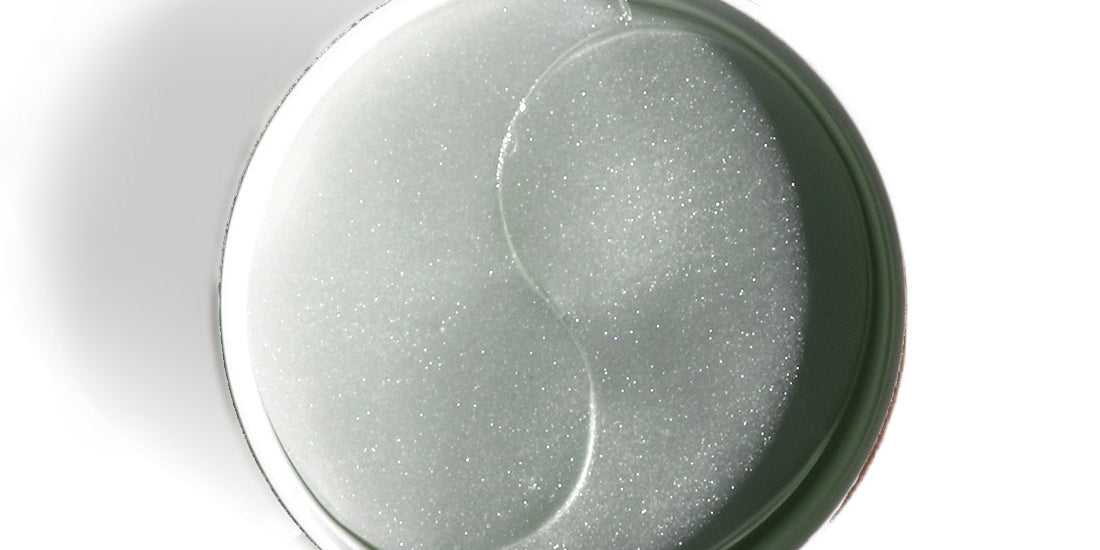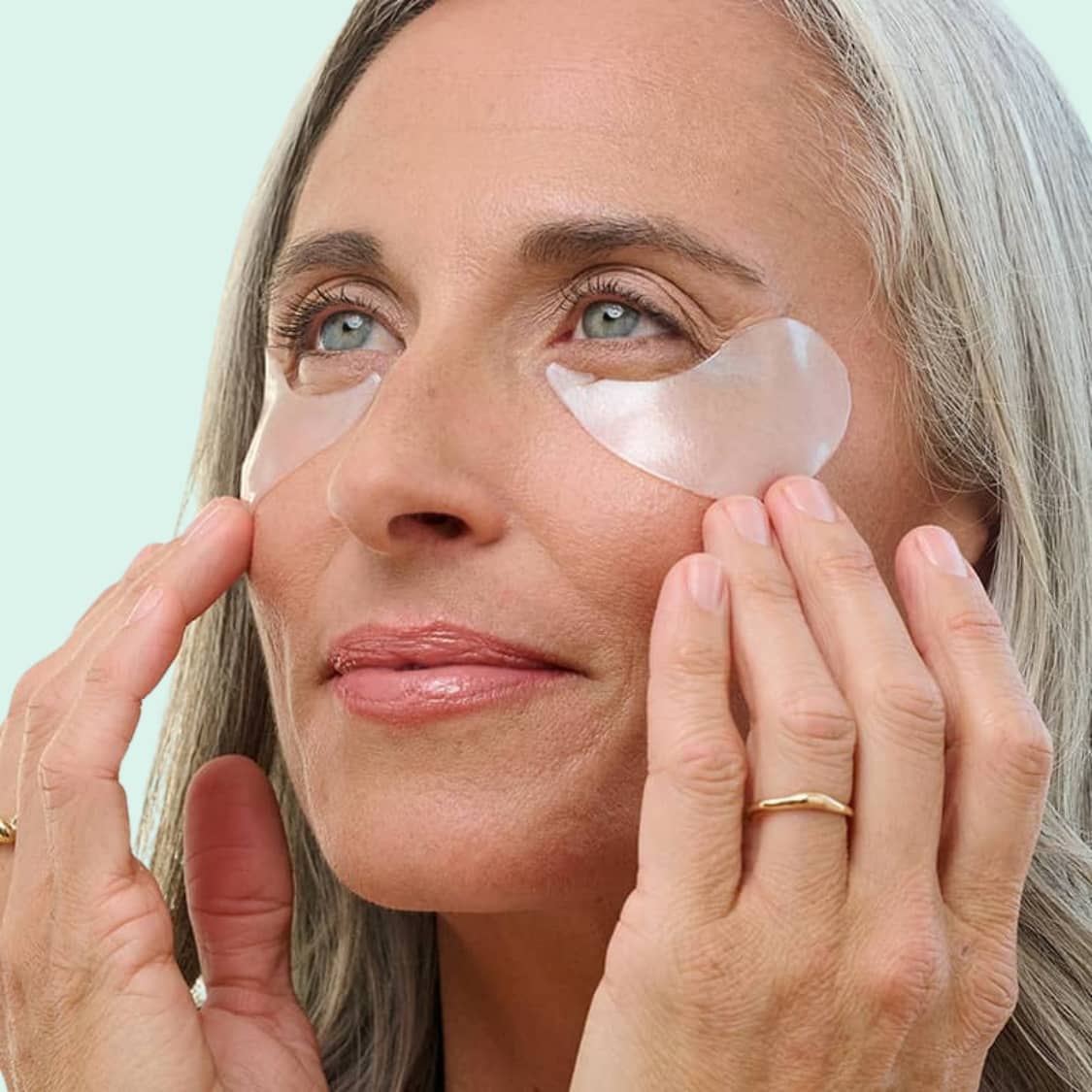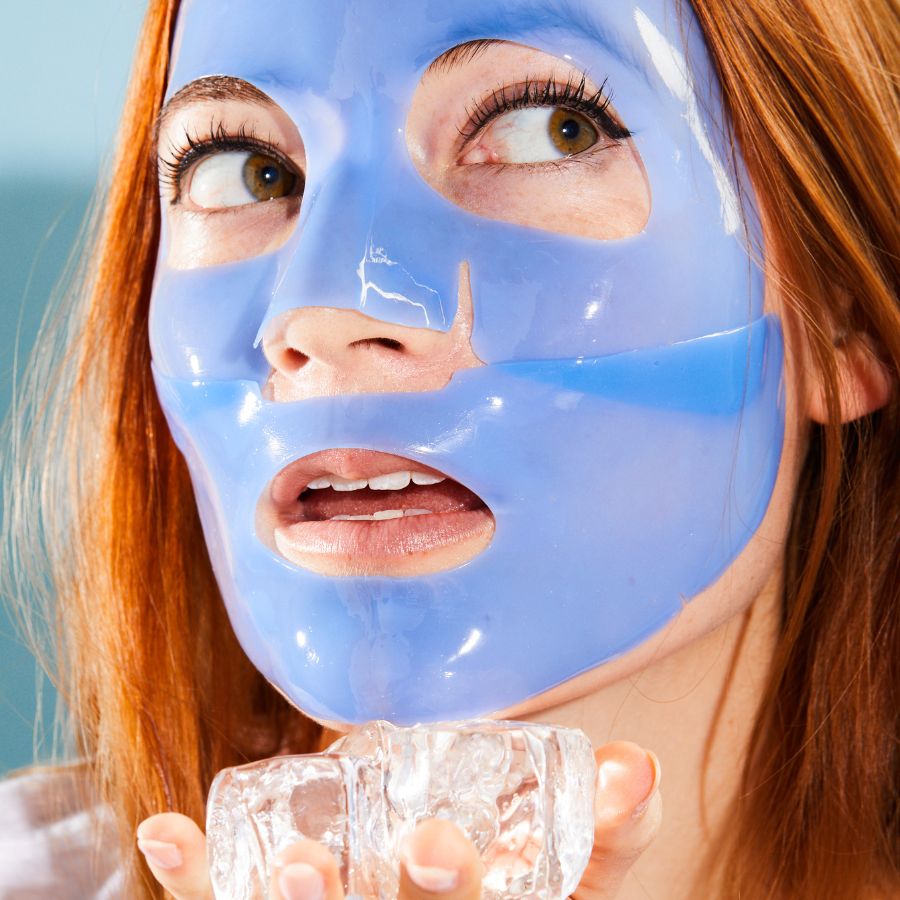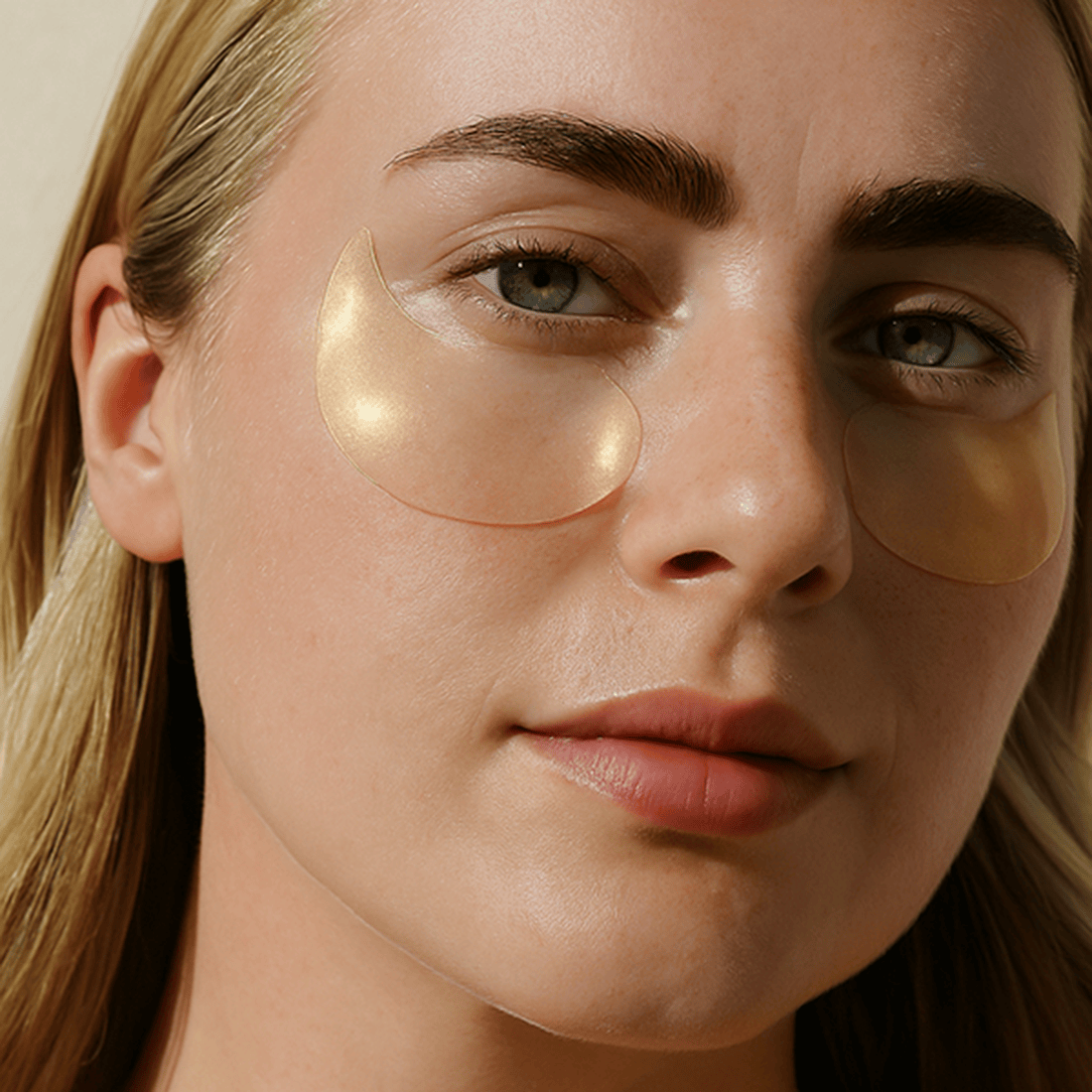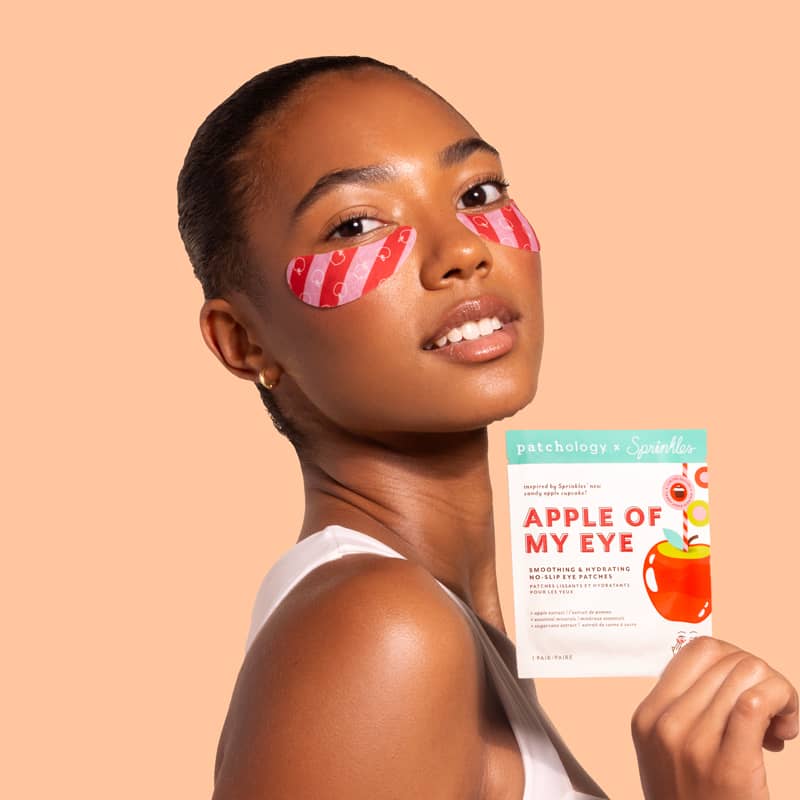Learn More About The Powerhouse Antioxidant for Skin
Do you need Vitamin C in your skincare routine?
In the world of skincare, few ingredients have gained as much recognition and admiration as Vitamin C. Often hailed as a skincare superhero, Vitamin C offers a range of benefits that can transform your complexion and give you that coveted radiant glow. Patchology's Vitamin C Deep Dive is here to provide your skin with a much-needed dose of this wonder ingredient. Let's explore the incredible benefits of incorporating Vitamin C into your daily skincare routine.

What’s the benefit of using Vitamin C in your skincare routine?
Brightens and Evens Skin Tone:
Vitamin C is renowned for its ability to brighten the skin. It helps to inhibit the production of melanin, which is responsible for dark spots and uneven skin tone. Regular use of Vitamin C can lead to a more luminous complexion and a reduction in the appearance of hyperpigmentation.
Powerful Antioxidant Protection:
Vitamin C is a potent antioxidant that shields your skin from the damaging effects of free radicals and environmental pollutants. This protection helps to prevent premature aging, such as fine lines, wrinkles, and loss of firmness, keeping your skin looking youthful and vibrant.
Hydrates the skin:
Vitamin C can help hydrate the skin by increasing the production of hyaluronic acid, which is a natural humectant that attracts water to the skin.
Stimulates Collagen Production:
Collagen is the protein responsible for maintaining skin's elasticity and firmness. Vitamin C plays a vital role in collagen synthesis, promoting the production of this essential protein. With increased collagen levels, your skin can appear plumper and more supple.
Boosts Sun Protection:
While Vitamin C is not a replacement for sunscreen, it can enhance the effectiveness of your sun protection routine. When used alongside sunscreen, Vitamin C helps to neutralize free radicals generated by UV rays, providing an added layer of defense against sun damage.
Harvard Health Publishing discusses more benefits of Vitamin C here.

Can you use caffeine with Vitamin C skincare?
Yes, you can use caffeine with vitamin C skincare. In fact, these two ingredients can complement each other and offer a variety of benefits for your skin.
Caffeine: Caffeine is a stimulant that can help reduce puffiness and dark circles under the eyes. It can also help improve circulation and brighten the skin.
Vitamin C: Vitamin C is an antioxidant that can help protect your skin from the damaging effects of free radicals. It can also help brighten the skin, reduce hyperpigmentation, and promote collagen production.
When used together, caffeine and vitamin C can help to:
Reduce puffiness and dark circles: Caffeine can help reduce puffiness and dark circles under the eyes by constricting blood vessels. Vitamin C can help brighten the skin and reduce hyperpigmentation, which can help to make dark circles less noticeable.
Improve circulation: Caffeine can help improve circulation by constricting blood vessels and then dilating them again. This can help to give the skin a healthy glow. Vitamin C can also help improve circulation by protecting blood vessels from damage.
Brighten the skin: Caffeine can help brighten the skin by constricting blood vessels and reducing puffiness. Vitamin C can help brighten the skin by reducing hyperpigmentation.
Promote collagen production: Caffeine can help promote collagen production by stimulating the production of fibroblasts, which are cells that produce collagen. Vitamin C is essential for collagen production, so using it together with caffeine can help boost collagen production even further.
The Cleveland Clinic covers more of what Vitamin C can do for your skin.

What shouldn’t be mixed with Vitamin C?
What are the best anti-aging ingredients that don’t contain vitamin c? Acids and BHAs, such as glycolic, salicylic, and lactic acids, should not be used with Vitamin C because it is an acid that can be unstable, so the pH balance will be thrown off by combining these ingredients together.
Vitamin C is a powerful antioxidant that can offer a variety of benefits for your skin. However, there are a few ingredients that should not be mixed with vitamin C, as they can reduce its effectiveness or even cause irritation.
Retinol: Retinol is another powerful antioxidant that can be beneficial for the skin. However, when mixed with vitamin C, it can create free radicals that can damage the skin. It is best to use retinol and vitamin C on different days or at different times of day.
Benzoyl peroxide: Benzoyl peroxide is an acne treatment that can be effective in killing bacteria. However, when mixed with vitamin C, it can create a bleaching agent that can discolor the skin. It is best to use benzoyl peroxide and vitamin C on different days or at different times of day.
AHAs and BHAs: AHAs (alpha hydroxy acids) and BHAs (beta hydroxy acids) are chemical exfoliants that can help remove dead skin cells and improve the appearance of the skin. However, when mixed with vitamin C, they can make vitamin C less effective and even cause irritation. It is best to use AHAs, BHAs, and vitamin C on different days or at different times of day.
We love the deep dive on Allure covering why Vitamin C is such a powerhouse of skincare.
If you are unsure about whether or not two ingredients can be mixed, it is always best to err on the side of caution and avoid mixing them. It is also important to patch-test any new skincare product on a small area of skin before applying it to your entire face.
When to use Vitamin C in your skincare routine
Speeds Up Skin Healing:
Vitamin C aids in the skin's natural healing processes. Whether you're dealing with a minor blemish or post-sunburn redness, Vitamin C can help your skin recover more quickly and reduce inflammation.
Fades Dark Spots and Scarring:
Whether caused by acne or sun exposure, dark spots and scars can be bothersome. Vitamin C's skin-brightening properties help fade these imperfections over time, leading to a more even complexion and smoother texture.

Can you mix Vitamin C and Vitamin B in your skincare routine?
Yes, you can mix vitamin C and vitamin B in your skincare routine. In fact, these two ingredients can complement each other and offer a variety of benefits for your skin.
Vitamin C: Vitamin C is an antioxidant that can help protect your skin from the damaging effects of free radicals. It can also help brighten the skin, reduce hyperpigmentation, and promote collagen production.
Vitamin B: Vitamin B is a group of vitamins that are essential for many bodily functions, including skin health. Some vitamins in the B complex, such as niacin and niacinamide, can help improve skin hydration, elasticity, and radiance.
When used together, vitamin C and vitamin B can help to:
Protect your skin from damage: Vitamin C can help protect your skin from the damaging effects of free radicals, and vitamin B can help repair damage that has already been done.
Brighten your skin: Vitamin C can help brighten the skin by reducing hyperpigmentation, and vitamin B can help improve skin hydration and elasticity.
Promote collagen production: Vitamin C is essential for collagen production, and vitamin B can help boost collagen production.
Hydrate your skin: Vitamin B can help hydrate the skin, and vitamin C can help protect the skin from water loss.
How to incorporate Vitamin C to your skincare routine
Suitable for Most Skin Types: Vitamin C is generally well-tolerated by different skin types, including sensitive skin. However, it's a good practice to perform a patch test before incorporating any new product into your routine.
Facial Masks

Bubbly Hydrogel mask: This hydrogel mask is formulated with antioxidants Resveratrol (from grapes!) and Orange Extract rich with vitamin C to help protect from environmental stressors, and Niacinamide to brighten dull under eyes.
On Ice hydrogel mask: Packed with firming and nourishing ingredients like Bakuchiol, Cloudberry Extract, and 9 (!) Peptides, they’re the perfect antidote to bags and fine lines. Cloudberry Extract is packed with vitamin C, which can brighten and energize the skin.
Playing Defense is crafted to be your go-to shield against environmental stressors, this powerhouse formula unveils a radiant, healthy glow that's sure to turn heads. Time to uncover the stars of this defensive powerhouse: Vitamin C, Ferulic Acid, and Vitamin E.
Together, these key ingredients form a dynamic trio aimed at fortifying your skin's defenses, ensuring it stays resilient against external aggressors.
Eye Gels

Illuminate Under-eye gels containing Vitamin C provide the right pick-me-up, plus green tea extract to improve circulation and reduce the appearance of dark under-eyes, mulberry extract to brighten skin from within, and reflective pearlescent minerals for an immediate luminous glow.
Rosé Eye Gels: Protect skin from environmental aggressors with their antioxidant-rich combination of Resveratrol (sourced from grapes!) and Strawberry Extract is an amazing source of vitamin C, plus an ultra-hydrating dose of Hyaluronic Acid.
Infused with the perfect balance of antioxidants and minerals, Illuminating helps to fight environmental hazards while keeping skin soft and vibrant.
The best time to use vitamin C in your skincare routine is in the morning. Vitamin C is an antioxidant, which means it can help protect your skin from the damaging effects of free radicals. Free radicals are molecules that are produced by environmental factors like pollution and UV rays, and they can also be generated by the body's own metabolism. Antioxidants like vitamin C can help neutralize free radicals before they can damage your skin cells.
Applying vitamin C in the morning also helps to protect your skin from the sun's harmful UV rays. UV rays can cause premature aging, wrinkles, and skin cancer. Using a sunscreen with vitamin C is an effective way to protect your skin from sun damage.
If you have sensitive skin, you may want to start with a low concentration and gradually increase the amount you use as your skin adjusts.
If you're using other active ingredients in your skincare routine, it's important to space them out so that you don't irritate your skin. Vitamin C can be used with retinol or benzoyl peroxide, but it's best to use them on different days or at different times of day.
Overall, vitamin C is a versatile and effective ingredient that can offer a variety of benefits for your skin. If you're looking for a way to improve the appearance of your skin and protect it from damage, consider adding a vitamin C serum to your skincare routine.
Here are some additional tips for using vitamin C in your skincare routine:
Look for a vitamin C serum that is formulated for your skin type. Vitamin C can be irritating for some people, so it's important to start with a low concentration and gradually increase the amount you use as your skin adjusts.
Apply vitamin C serum to clean, dry skin. Avoid using it around your eyes.
Use vitamin C serum in the morning before applying sunscreen. This will help protect your skin from sun damage.
Store vitamin C serum in a cool, dark place to protect it from oxidation.
The Wrap Up:
With its multitude of benefits, it's clear why Vitamin C has become a staple in skincare routines worldwide. From brightening and evening out skin tone to providing antioxidant protection and stimulating collagen production, Vitamin C can truly transform your complexion.



